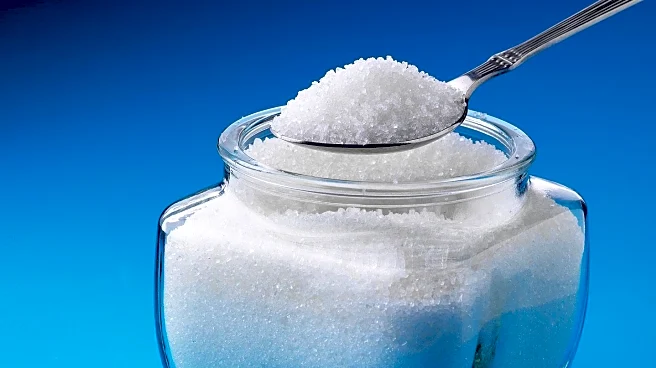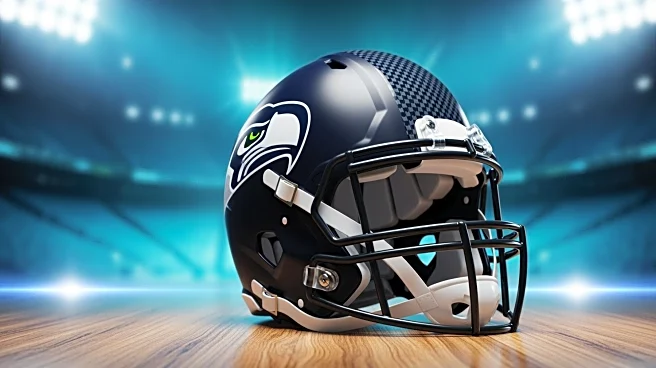What is the story about?
What's Happening?
Research from the University of Pittsburgh and UPMC Hillman Cancer Center suggests that the artificial sweetener sucralose could interfere with the effectiveness of immunotherapy in cancer patients. The study involved 132 patients with melanoma and nonsmall cell lung cancer, revealing that those consuming high levels of sucralose had poorer responses to treatment. The findings indicate that sucralose may alter the gut microbiome, reducing levels of the amino acid arginine, which is essential for T-cell function in immunotherapy. Researchers are considering arginine supplementation as a potential countermeasure.
Why It's Important?
The study highlights a potential dietary factor that could impact the effectiveness of cancer treatments, specifically immunotherapy. As sucralose is widely used in diet sodas and low-calorie snacks, this research could lead to changes in dietary recommendations for cancer patients. The findings underscore the importance of understanding how diet can affect treatment outcomes, potentially leading to more personalized dietary guidelines for patients undergoing cancer therapy. The research also opens the door to exploring other dietary factors that may influence treatment efficacy.
What's Next?
Researchers plan to conduct a clinical trial to investigate the effects of arginine supplementation in human cancer patients. They will also explore the impact of other sugar substitutes on immunotherapy effectiveness. These studies aim to provide clearer guidance on dietary choices for cancer patients and to develop strategies to enhance treatment outcomes. The research could lead to new recommendations for managing diet during cancer treatment, potentially improving survival rates and quality of life for patients.














